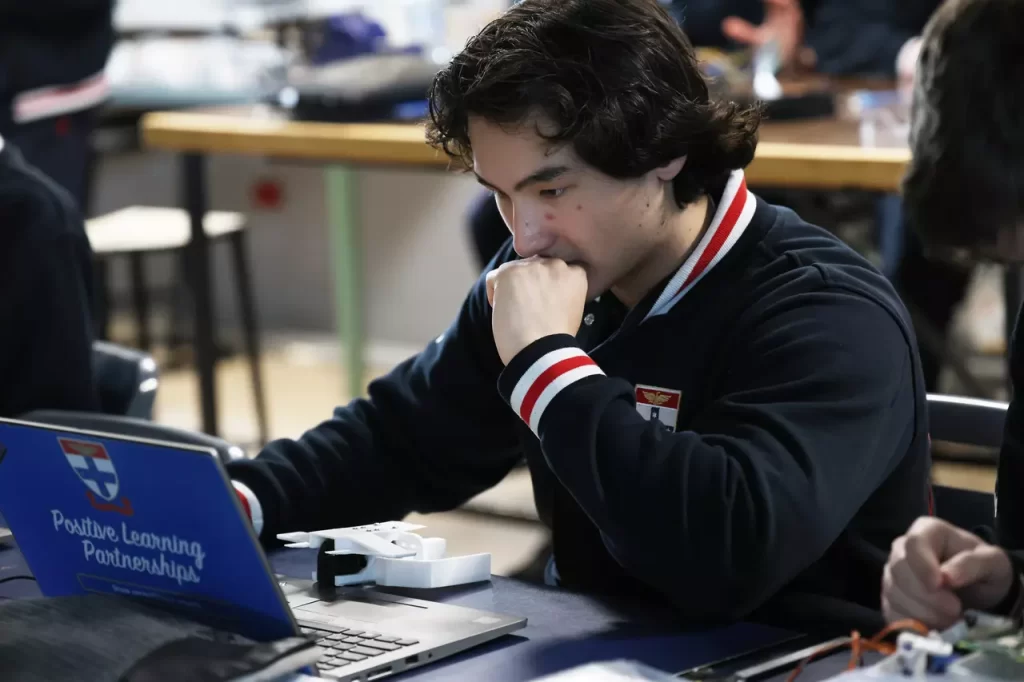Study Skills and Time Management: How to Study Effectively at Home
Tuesday 22nd October 2024
It’s that season again — exams are approaching, and days are slipping by. Now is the time to start preparing for success, ensuring you’re ready for whatever comes your way.
No matter what year level you are in, having reliable study skills in your back pocket will really make a difference during end-of-semester exams. Rather than going in underprepared and stressed, effective preparation will ensure you go in with confidence and capability. Below are our top skills we recommend.
1. Set goals before exams come
Beginning your exam preparation early can help you avoid procrastination and better prepare for success. One way is to set SMART goals of what you want to achieve. SMART goals are:
- Specific – straight to the point
- Measurable – able to be quantified and tracked
- Achievable – within reach and realistic
- Relevant – aligned with the overall objective that’s wanted to be achieved
- Time bound – within the timeframe that they should be achieved in.
Knowing what you want to achieve will help you set goals. Having goals to aim for will motivate you to reach success during your end-of-term assessments.
2. Stay organised and find a good space
In preparation for exams, use a yearly planner to plan for important dates coming up so you can manage your time effectively. Writing study times down and colour coding subjects helps to give a good visual of what’s to come and how to plan for it. Equally as important, find a good space where you can study well. Whether it be in a library, your bedroom, or a study nook, make sure your space is tidy, the room is quiet, and distractions are out of sight, so you can be productive and focused. Avoid being around friends or having your phone out as that will quickly distract you.
3. Create a study schedule and routine
Have a consistent schedule and routine that accommodates all subjects and activities. After class, it’s good to give yourself a break for an hour, but after, dedicate an hour to study before dinner and another hour or two after dinner. If you have a big exam coming up, it’s recommended to focus more energy on that one and allocate time to your other subjects in the following days. Be adaptable and flexible depending on what’s most important. A routine will help you manage your time and be consistent with your to-do’s.
4. Find ways to relieve stress to improve mood and sleep
While studying for school exams is important, balancing time to destress is just as important. If you don’t, you will ultimately hit a stage of burnout. One of the best ways to destress is to get off technology. Go outside, take a hike, garden, go on a walk with your dogs, do yoga, or play your favourite sport. Being in nature and the sunshine helps refuel your body with energy and Vitamin D. Another option is to take part in artistic hobbies such as reading, painting, drawing, playing cards, crafting, or chess as these are still activating your brain to think, but they calm you down at the same time.
5. Use the right study techniques
Once you have the above skills implemented, you’ll be ready to ace those end-of-term assessments. But what happens when the material is put in front of you? Below are three evidence-based study techniques that work well for students to maintain focus and retain information.
Delayed gratification
Delayed gratification is a powerful technique for staying motivated during study sessions. By postponing immediate rewards, such as checking your phone, you can incentivise yourself to stay focused on your work. For example, you might set a goal to complete a certain amount of material before allowing yourself a break or treat. This approach helps you build discipline and keeps you on track toward your larger study goals.
Repetition and active recall
Repetition of material is key to solidifying knowledge, and is one of the most effective active study techniques. Coupled with active recall—actively trying to remember information without looking at your notes—this technique is highly effective for long-term retention. For example, after studying a chapter, try to summarise the main points from memory, or quiz yourself on key concepts. Repeatedly testing yourself in this way strengthens neural connections and helps the information stick.
Pomodoro method
Break down your study sessions into manageable chunks. This approach is not only beneficial for memory retention but also helps prevent study burnout. The Pomodoro technique is a time management method for students that breaks work into intervals, typically 25 minutes of focused study followed by a 5-minute break. After completing four ‘Pomodoros’, take a longer break of 15-30 minutes. This method is designed to maximise concentration and minimise mental fatigue by balancing work and rest. It also encourages a rhythm of productivity, helping you maintain focus throughout the study session.
Effective preparation for final assessments
At St Francis Xavier College, we are committed to supporting all our students on their path to success. We aim to help them feel well-prepared and confident as they approach their end-of-term assessments. Our teaching staff are here to guide them in the right direction and provide support in their assessment preparation. Contact us to learn more.
